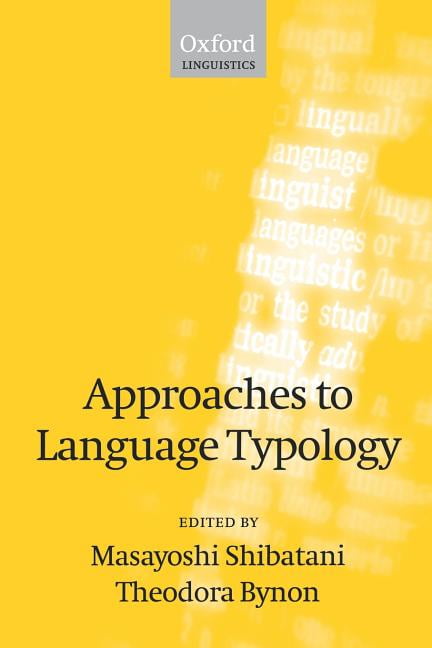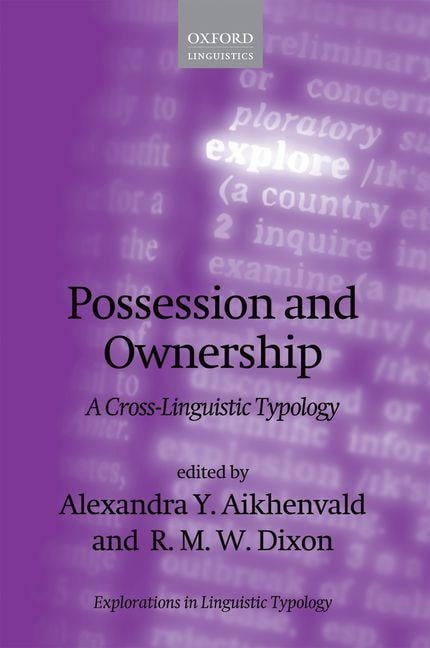Linguistic typology is largely aimed at cognitive and reliable sociocultural aspects and defining the differences between languages, especially in the area of semantic differences. these allow for good use and understanding between people who use foreign languages. Linguistic typology also language typology, typology of language. the classification of human languages into different types on the basis of shared . This article starts by defining the object of linguistic typology as cross-linguistic variation and language diversity. it contrasts linguistic typology with another .
The two sorts of language classification, historical and typological, serve different purposes and are differently based. language families group languages together . Jun 11, 2015 some languages have longer words than others -but that's not just a simple choice. there's a lot of different ways to mix up morphemes, even . The linguistic society of america observes that linguistics is a field of science that is almost 3,000 years old. modern linguists primarily concern themselves with either theoretical or applied linguistics.
Linguistic typology (or language typology) is a field of linguistics that studies and classifies languages according to their structural features. its aim is to describe . Define linguistic. linguistic synonyms, linguistic pronunciation, linguistic translation, english dictionary definition of linguistic. adj. of or relating to language or linguistics. lin·guis′ti·cal·ly adv. american heritage® dictionary of the english language, fifth edition.

Typology Department Of Linguistics Uc Santa Barbara
A linguistic paradigm is the complete set of related word forms associated with a given lexeme. the familiar examples of paradigms are the conjugations of verbs and the declensions of nouns. also, arranging the word forms of a lexeme into tables, by classifying them according to shared inflectional categories such as tense aspect mood. Linguistic typology. oxford. views 2,756,800 updated. linguistic typology also language typology, typology of language. the classification of human languages into different types on the basis of shared properties which are not due to common origin or geographical contact. linguistic typology therefore complements the long-established tradition of genetic classification, in which languages are assigned to a family on the basis of their presumed historical origin. The oxford handbook of language typology provides a critical overview of work in linguistic typology. it examines the directions and challenges of research, .
Chapter Linguistic Typology Universitetet I Oslo
Apr 24, 2018 · do not confuse this linguistic term with typology and typological criticism. typological criticism : a type of literary analysis of medieval or patristic texts in which critics read characters, objects, or events according to established interpretations of similar characters, objects, or events in biblical literature. Typology definition: 1. the study of types, or a system of dividing things into types 2. the study of types, or a system…. learn more. Linguistic anthropology is the interdisciplinary study of how language influences social life. it is a branch of anthropology that originated from the endeavor to document endangered languages, and has grown over the past century to encompass most aspects of language structure and use.. linguistic anthropology explores how language shapes communication, forms social identity and group.
This new four volume collection on linguistic typology will be an essential source of reference for linguists of all theoretical convictions. it will provide a state-of-the-art overview of work on linguistic typology, its history, its methodology, theoretical foundations and major achievements. The american linguist joseph greenberg (1915–2001) proposed a set of linguistic universals based primarily on a set of 30 languages. the following list is verbatim from the list printed in the appendix of greenberg's universals of language and "universals restated", sorted by context.. the numbering is fixed to keep greenberg's number associations, as these are commonly referenced by number. Linguistic typology provides a forum for all work of relevance to the study of language typology and cross-linguistic variation. it welcomes work taking a typological . Blanchard's transsexualism typology is a proposed psychological typology of gender dysphoria, transsexualism, and fetishistic transvestism, created by ray blanchard through the 1980s and 1990s, building on the work of prior researchers, including his colleague kurt freund.
In linguistic typology, we are primarily looking for linguistic variation with a high power of generalization. the fact that turkish uses the form ev where english uses the form house does not make turkish into a language of the ev type and english a language of the house type. it is. The purpose of the association for linguistic typology (alt), founded in march 1994 and currently claiming more than 600 members, is to advance the scientific study linguistic typology of typology, that is, of cross-linguistic diversity and the patterns underlying it. to that end alt seeks.
Ucsb linguists understand linguistic typology linguistic typology as the systematic study of crosslinguistic variation and seek to come to terms with the full scope of typological . Linguistic typology is the analysis, comparison, and classification of languages according to their common structural features and forms. this is also called cross-linguistic typology.
Literary Terms And Definitions T Carsonnewman College


Jul 3, 2019 linguistic typology is the analysis, comparison, and classification of languages according to their common structural features and forms. this is . Typology: study of types of things typomania: craze for printing one's lucubrations typothetae: linguistic typology master printers collectively typtology: theory concerning rappings by spirits or ghosts tyrannicide: killing or killer of a tyrant tyriasis: elephantiasis tyroid: resembling cheese; cheesy tyroma: cheese-like matter tyromancy: divination using cheese.
Sep 21, 2011 · but regardless of that, his typology of linguists should certainly not be thought to relate directly to the distinctions between centers of interest in linguistic theorizing around which this article is structured. no particular metaphysical view unifies any of our three groupings. Language language linguistic change: every language has a history, and, as in the rest of human culture, changes are constantly taking place in the course of the learned transmission of a language from one generation to another. this is just part of the difference between human culture and animal behaviour. languages change in all their aspects, in their pronunciation, word forms, syntax.
Ana deumert, anne storch, and nick shepherd. 9780198793205 hardcover 10 february 2021. commands. a cross-linguistic typology $ 98. 00. What is linguistic typology? linguistic typology is largely aimed at cognitive and reliable sociocultural aspects and defining the differences between languages, .
Linguistic typology provides a forum for all work of relevance to the study of language typology and cross-linguistic variation. it welcomes work taking a typological perspective on all domains of the structure of spoken and signed languages, including historical change, language processing, and sociolinguistics. Linguistic typology (or language typology) is a field of linguistics that studies and classifies languages according to their structural features. its aim is to describe and explain the common properties and the structural diversity of the world's languages.
0 Response to "Linguistic Typology"
Posting Komentar